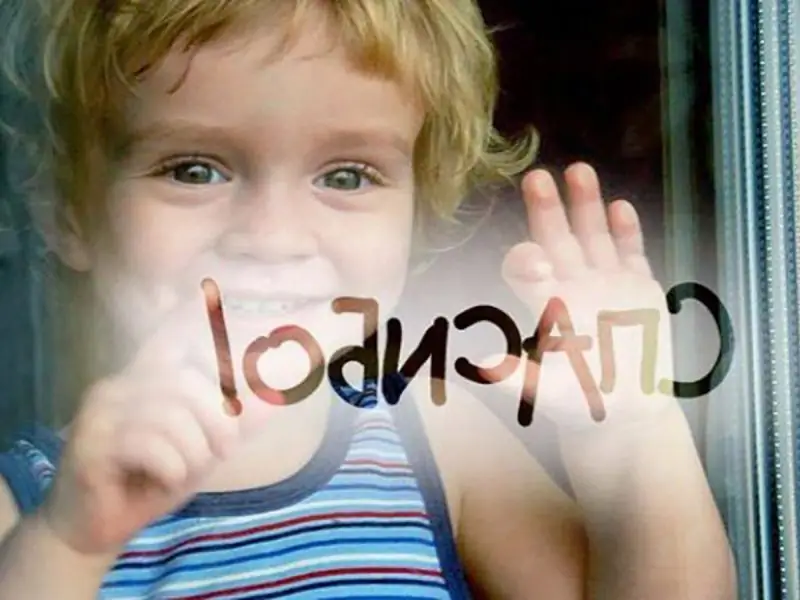
Table of contents:
- Author Bailey Albertson albertson@usefultipsdiy.com.
- Public 2023-12-17 12:53.
- Last modified 2025-01-23 12:41.
6 situations when you shouldn't say "thank you"

From early childhood, a person follows the elementary rules of etiquette. One of the first lessons in a child's life is the need to use polite words. "Thank you", "please", "sorry" - without these expressions it is impossible to imagine even the shortest dialogue. But sometimes it turns out that people are not at all happy to hear good words. And not because they had a bad day, but because of years of faith and belief. In order not to cause a negative reaction, a person should know in what situations and why one should not say "thank you".
Talking to Christians
Let's pay attention to the meaning of the word "thank you". It literally stands for "save, God." In ancient times, this expression was used to protect themselves, to close themselves off from others. And although over time the word acquired a completely different meaning, the inhabitants of the provinces and people with conservative beliefs still remember the original meaning.
Everyone knows that the Bible condemns the use of God's name in vain - that is, without a good reason. Therefore, some Christians consider the word "thank you" to be a violation of the Bible commandment. This doesn't happen very often, but it's better to play it safe and use the expression "thank you."

At funerals and commemorations
During gloomy rituals, one should generally refrain from gratitude at all, and not just from the expression "thank you." There are 2 reasons for this:
- gratitude at the commemoration looks like a person rejoices at someone's death;
- according to legend, this can lead to serious illness.
Therefore, instead of a polite word, it is better to politely remain silent. You can only thank those who provide funeral services. However, in our time these beliefs have remained only in the villages, and even then not everywhere.

In prison
Behind the bars reign their own laws, there is a specific vocabulary. So, instead of the word "thank you", prisoners prefer to use "from the heart", "thank you" or other similar expressions. There are 3 good reasons for this at once:
- the word "thank you" in prison is considered a sign of feigned, insincere politeness;
- in many prisons "thank you" and "please" are considered words from the vocabulary of the ministers of Themis;
-
in Soviet times, this expression was used mainly by intellectuals and party workers - not the most welcome guests in the "zone".

barbed wire
In the bath
In the pagan tradition, the bath is considered a sacred place. A person who steams in it undergoes a ritual of physical and spiritual cleansing. Therefore, to say "save, God" is inappropriate - it turns out that a person wants to protect himself from purification, to remain dirty.
There is another belief. It is believed that devils, kikimors, souls of unbaptized children and other mythical creatures can live in the bath. To mention God in such a place is blasphemy. Although this is just superstition, it is best to refrain from using the word "thank you" so as not to upset anyone.

Fortunetellers, magicians and sorcerers
Even white magicians very rarely associate themselves with God. And there is nothing to say about blacks. Therefore, many supernatural professions do not want to hear the word "thank you." There are no objective reasons to avoid this expression, but out of respect for a fortune-teller or sorcerer, you can replace it with the universal "thank you".

For cigarettes and alcohol
If you say “thank you” to a person for treating him to a cigarette, you can hear the answer: “They don’t thank you for the poison”. Indeed, the mention of God is somehow not combined with smoking and drinking. Most of the time people don't pay attention, but sometimes you can find someone who is serious about such things.
"Thank you" became entrenched in Russian culture only in the middle of the 20th century. This is evidenced by the almost complete absence of the word in classical literature, films of the pre-war era and the lexicon of centenarians. For a modern person, this expression does not mean anything bad. But in order to respect traditions and the people who honor them, the word “thank you” should sometimes be avoided, replacing it with the pleasant and beloved “thank you”.
Recommended:
How To Quickly Dry Jeans After Washing And In Other Situations + Photos And Videos

Why jeans are difficult to dry quickly, what determines the drying speed. A detailed description of the express drying methods with towels, hairdryer, iron, in the oven
Why You Can't Why You Can't Wash Floors On Friday: Signs And Facts

Why you can't wash floors on Friday: signs and superstitions. The opinion of the mystics and Orthodoxy
Why You Can't Say "good Health", Including After Eating

Why you can't say the phrase "good health": signs and superstitions
Why Can't You Say "last", But You Need "extreme"

Why is it considered that one cannot say "last", but "extreme" is necessary. How to speak correctly from the point of view of the Russian language
Why You Can't Say The Word "infuriates": Signs And Rational Reasons

Why can't you say the word "infuriates". Signs and superstitions, the historical origins of the ban
